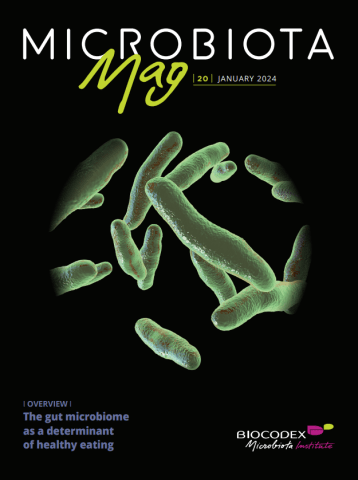
Microbiota 20 - January 2024
Dear readers,
According to the WHO, chronic noncommunicable diseases (NCDs) are the number one cause of death and disability in the world1 . NCDs have reached epidemic proportions in industrialized societies, a development clearly linked to changes towards western-style dietary patterns. It is an understatement to say that the topic of “healthy eating” will be a crucial public health issue in the coming years. In this Microbiota Mag new issue, Dr. Jens Walter and his team discuss what constitutes healthy eating from a microbiome science perspective and argue that a mechanistic understanding of diet-microbiome interactions can inform discussions of nutrition controversies and advance the development of healthier diets. Dr. Jens Walter tells us that “the gut microbiome may constitute the “black box” of nutrition research as many physiological effects of diet may be influenced by diet-microbe-host interactions.”
It is not a “black box” but rather a glimmer of hope in preclinical Alzheimer’s disease. For the very first time, an article published in Science Translational Medicine demonstrates a modification in the composition of the gut microbiota in preclinical Alzheimer’s disease. According to Pr. Pascal Derkinderen, “this article provides new evidence to suggest that the microbiota could play a role in the development of Alzheimer’s disease at an early age”. Alzheimer’s disease is the mostly commonly diagnosed form of dementia in older adults. Like NCDs, Alzheimer’s disease is an important public health issue in the coming years. And like NCDs, behaviors and health conditions even earlier can affect a person’s risk for later-life dementia or NCDs. Another good reason to target the gut microbiota.
Enjoy your reading!


